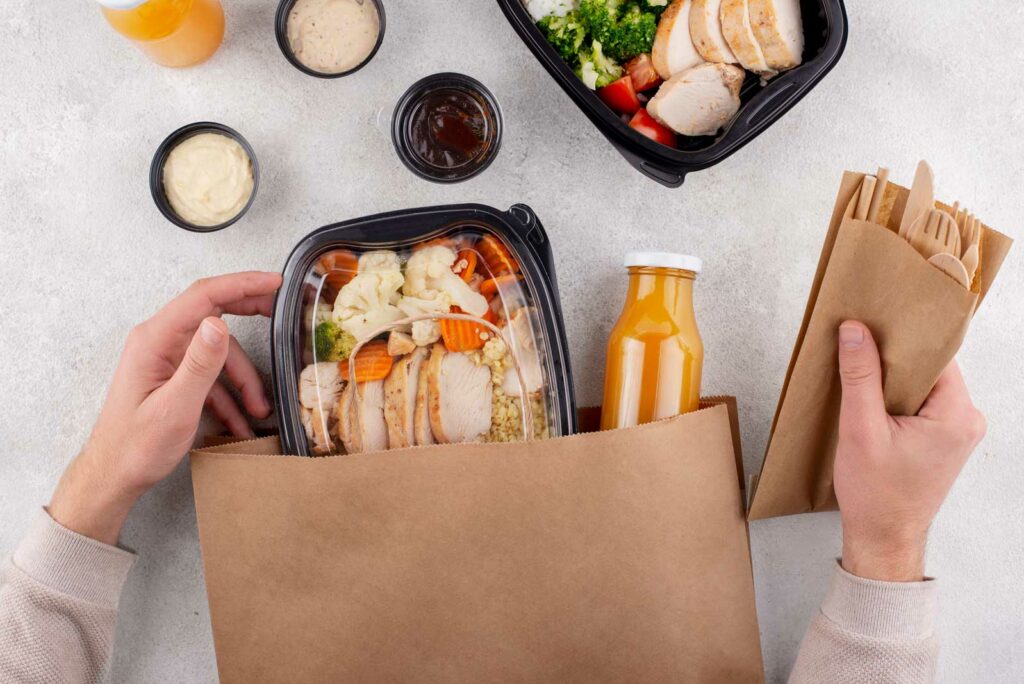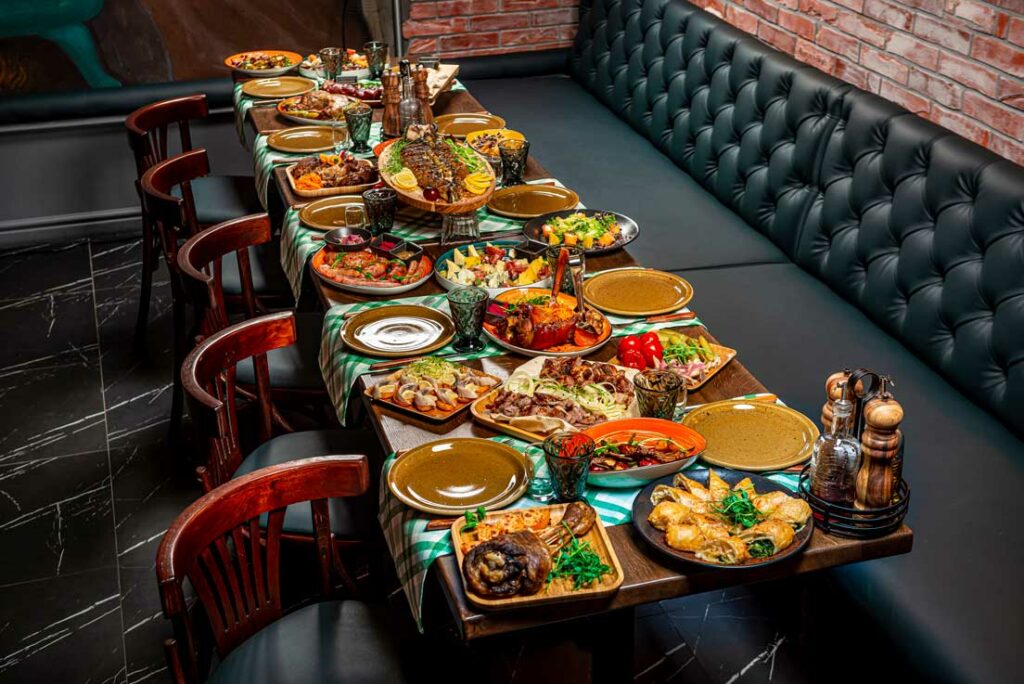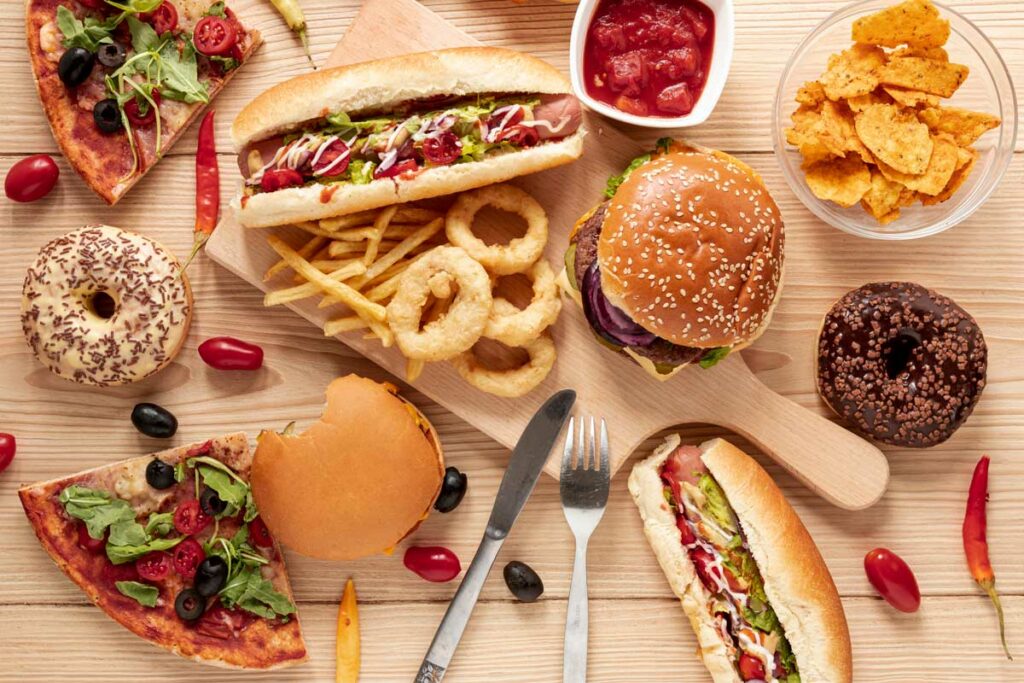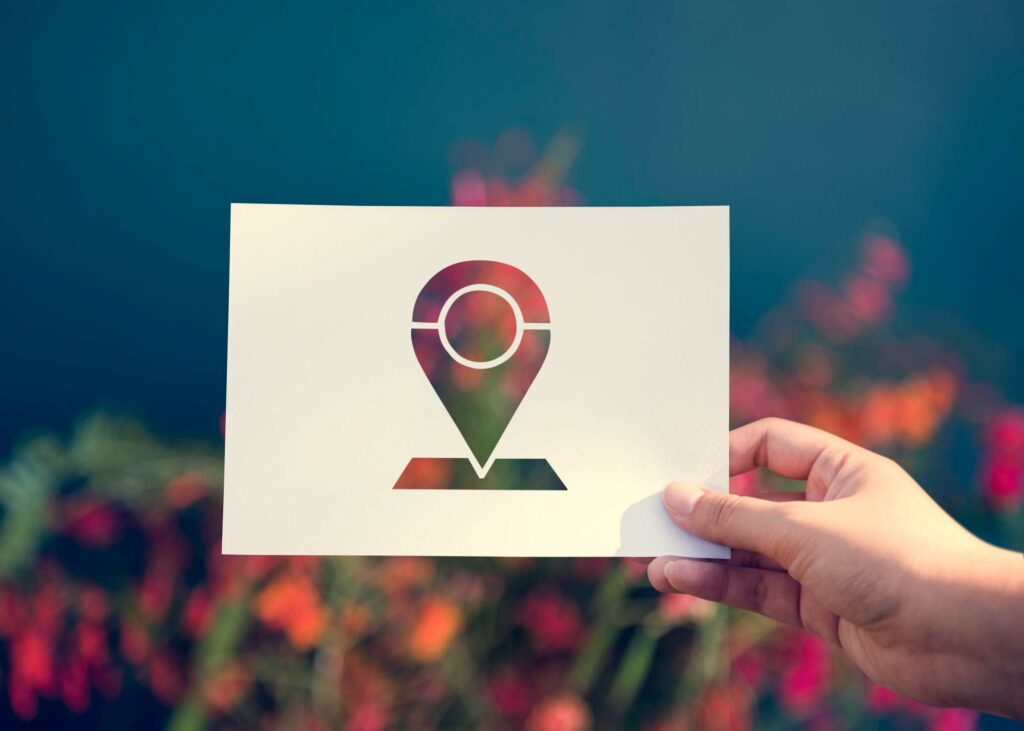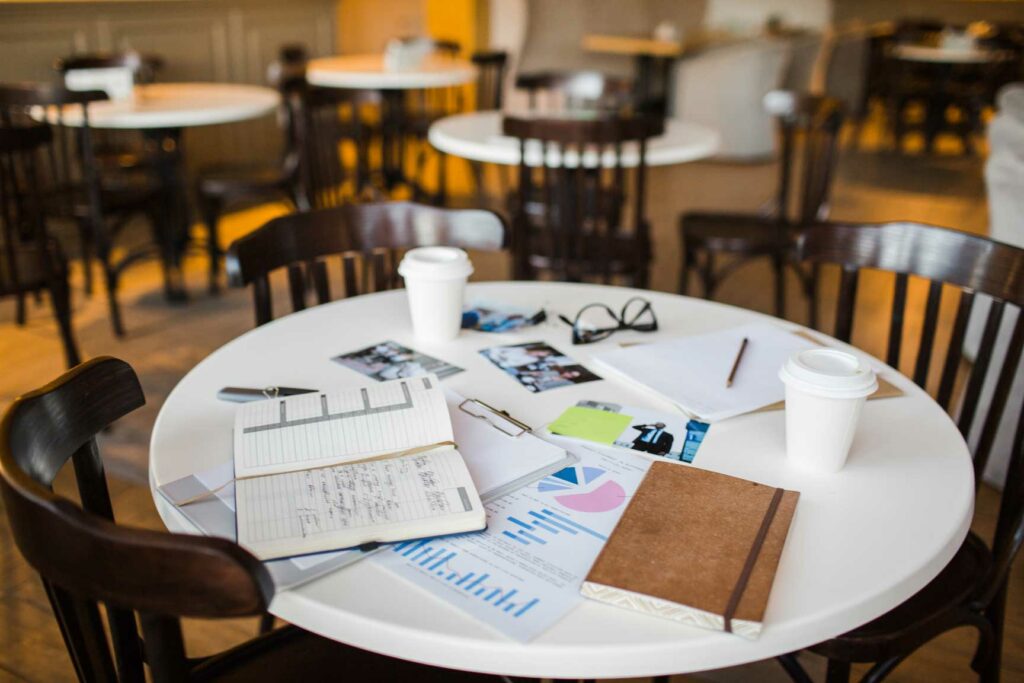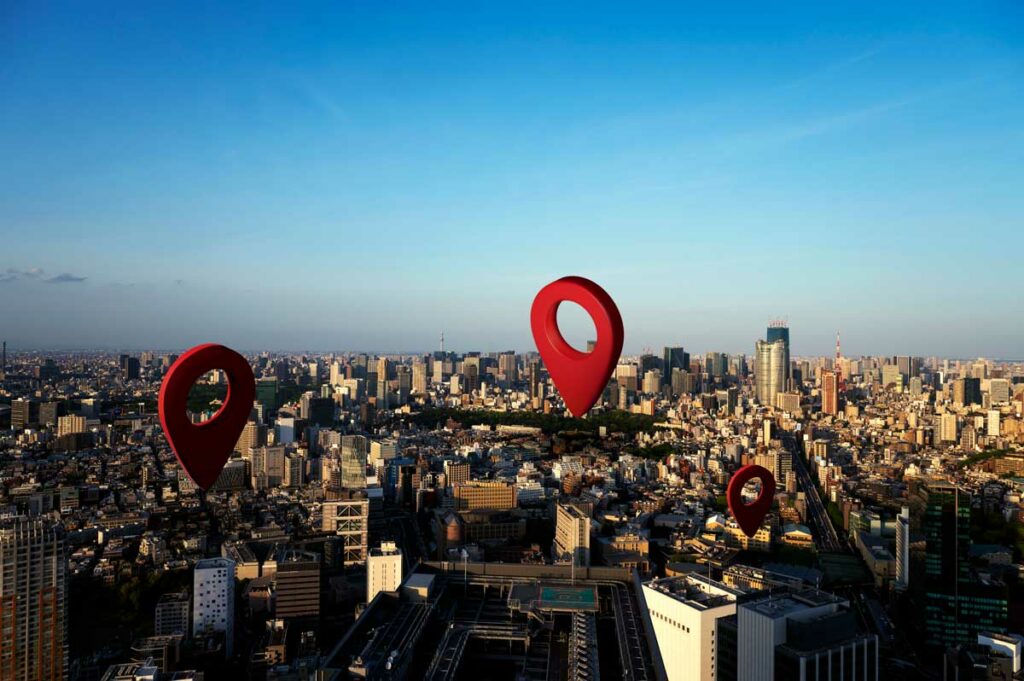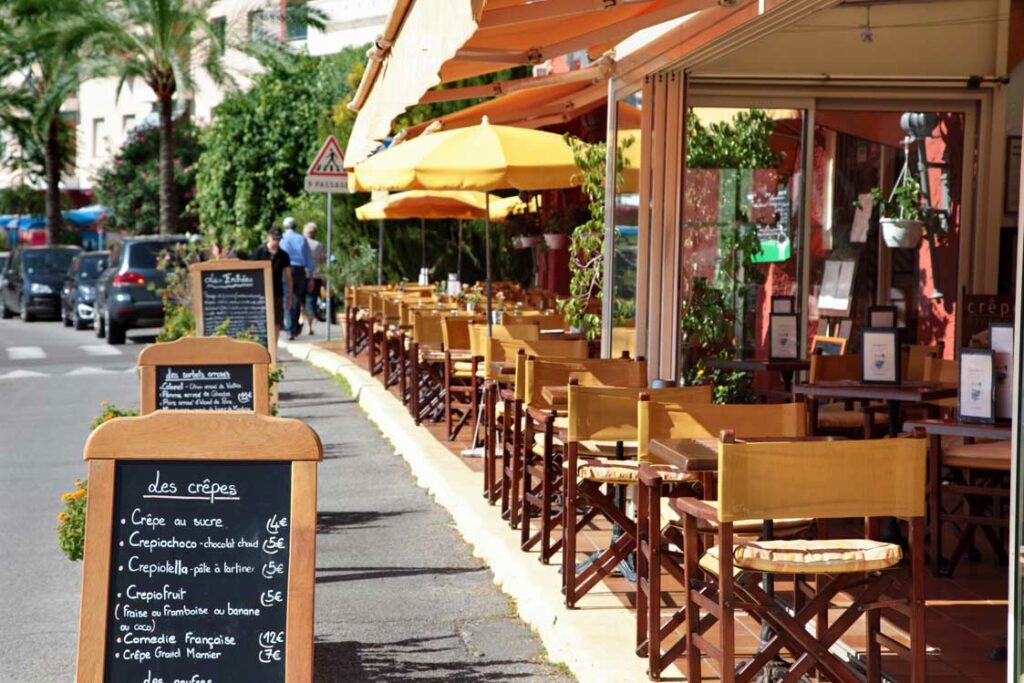It’s time to open a cafe! You know you want to, but where do you start?
The British Coffee Association , 80% of people who visit coffee shops make a visit at least once a week, while 16% visit each day.
We’ve got you covered. Here are the 8 steps to starting your own coffee shop:
1. Unique Coffee Shop Name!
Choose a name that speaks to your brand and resonates with your customers. A good name will be memorable and easy to spell and say, and it should reflect the kind of place you want your food business to be.
2. Design is Key in Food Business
Hire a designer who can help you build an incredible brand to attract customers and excite them about being there every day (or at least once a week).
3. Identifying Your Coffee Shops Unique Selling Proposition
Figure out what makes your coffee shop unique and special so that customers know why they should come there instead of elsewhere. Maybe it’s their passion for serving delicious coffee or their commitment to using ethically sourced beans; whatever it is, make sure it is clear on every single one of your marketing materials so people do not doubt why they should go to YOUR store instead of someone else’s!
4. Creating an Engaging and User-Friendly Coffee Shop Website
Make sure your website has all the information customers need to make an informed decision about whether or not it is the kind of place they want to spend their money. This includes things like hours and locations.
5. Find the perfect location for your coffee shop.
Consider factors such as foot traffic, accessibility, parking, and nearby businesses. You want to ensure your location is easy to find and convenient for your customers. Additionally, take a look at the surrounding community and think about what kind of people live and work in the area. This can help you tailor your menu and marketing strategies to appeal to your target audience.
6. Create a menu that stands out.
While coffee will likely be the main attraction of your cafe, it’s important to offer other menu items that complement your coffee and appeal to various tastes. Consider offering a selection of baked goods, sandwiches, salads, or other snacks that will keep customers coming back for more. Don’t be afraid to get creative with your menu items and experiment with new flavours and combinations.
7. Invest in high-quality equipment and supplies.
A good espresso machine, grinder, and brewing equipment are essential to producing great-tasting coffee. Additionally, invest in quality cups, plates, and utensils that will enhance the overall experience for your customers. Investing in the right equipment and supplies ensures that your coffee shop can consistently deliver high-quality products and services.
8. Build a loyal customer base.
One of the most important aspects of running a successful coffee shop is building a loyal customer base. Make sure to provide exceptional customer service, engage with your customers on social media, and offer loyalty programs or other incentives to keep them coming back. By creating a welcoming and friendly atmosphere, you can build a community around your coffee shop and establish a reputation as a go-to destination for coffee lovers in your area.
Here’s our guide to how to plan, open and start a cafe business
Despite being known as the world’s best tea drinker, we are now quickly becoming an industry leader for coffee enthusiasts. We have been switching to beans for a decade now as coffee consumption slowly narrows the gap between a cuppa and a typical cup. Today British consume about 45 billion calories a day in their daily diet. So there is no surprise that the café industry is expanding in the UK, with over 80% of visitors visiting coffee shops at least once every week. Despite a huge market presence opening in the window, the market is stagnant.
Plan
Before you open your cafe, you should have a plan in place. This can be as simple as a few pages of notes or as elaborate as a full-blown business plan. If it’s the latter, keep it updated as your business changes over time.
Open Your Cafe or Coffee Shop
Now that you’ve planned out the layout and operation of your cafe, it’s time to open! The best way to ensure that everything goes smoothly is by checking off all the steps in your plan before you get started on opening day. This will help prevent surprises from popping up during construction or after opening day!
Start Serving Customers
Now that people are coming into your cafe for food and drinks, let them know about any special offers or promotions you have (like free refills on drinks). You should also look for ways to improve your service based on customer feedback so that everyone has an enjoyable experience when they visit one of your establishments!
Coffee shop ideas – create the right proposition
Unlike restaurants, coffee shops depend on passing trade and usually serve offices at night or shoppers at weekends. This allows you to develop a unique idea without extra time. A coffee shop concept generally falls between two camps – those offering rapid and efficient support to clients on the run or a place to stay for a few hours. It can also affect how you serve your coffee, and artisan coffee is becoming a major trend in independent coffee shops.
Coffee shop owners need to create the right proposition to win over customers and keep them loyal. This means making sure that you offer a range of drinks and food items that are suited to the tastes of your local area but also ensuring that you offer something unique enough to set you apart from your competitors.
The best way to achieve this is by discovering what other coffee shops in your area offer. If there are already several cafes on your high street selling similar products, then it’s best not to try and compete with them head-on by offering the same kind of product or service. Instead, look for ways in which you can differentiate yourself from them.
What You Need to Open a Coffee Shop
Starting a coffee shop is a great idea. You can be your own boss, you don’t have to answer to anyone, and the profits are incredible. However, if you don’t know what you’re doing, you could end up losing all your money. Here’s what you need to know before opening your own coffee shop:
Location
The first thing you need to do is find a location for your coffee shop. You want it to be in a busy part of town so that people can see it and hear about it easily. It should also have plenty of parking nearby so that customers have somewhere safe and easy to park their cars while they enjoy their drinks and pastries.
Equipment
Next comes the equipment needed for running a successful business. You’ll need things like coffee machines, grinders, blenders and mixers; everything from cups and plates to napkins and straws; plus all the other little things that make customers feel comfortable in your establishment—like music playing softly overhead or artwork hanging on the walls! Don’t forget about seating, either! Some people just want something quick, like an espresso shot, before heading off; others might want something.
How to Choose the Perfect Coffee Shop Location
It’s a critical part of the successful operation of your coffee shop. Almost everyone chooses coffee shops to get something to drink while away from home.
This means places near offices, shopping, and rail stations have the footfall necessary to gain profit. However, finding appropriate premises at an ideal location without astronomical rent is difficult.
Usually, unless the rental price is above 15% of the anticipated sales, the profit will be hard. Those who are unsure of how they are paying the rent should leave and look at cheaper places in the neighbourhood. The UK coffee shop market is increasing.
Equipment, Utilities and Supplies
Here is the list of essential tools for starting your coffee shop.
Equipment
To get started, you need the basics. You’ll need a coffee maker, a grinder, and a large sink with garbage disposal (because free coffee grounds are messy). Then you’ll need some basic equipment: a dishwasher, a refrigerator/freezer, a slicer and dicer (if you plan on selling fresh fruit or vegetables), and an oven for baking muffins or other baked goods. You may also want to invest in an espresso machine if you plan to offer latte art.
Utilities
You’ll also need to set up utility accounts for your independent coffee shop. These accounts will provide water and electricity for your business. You should also ensure you have internet access so customers can pay online!
Supplies
With all of your equipment and utilities in place, the last thing you need to do is stock up on supplies! Your first order of business should be to order coffee beans—you can choose between whole bean or ground—and other items like sugar cubes or sweeteners. To get customers’ attention with delicious smells wafting throughout your store, consider stocking cookies or pastries made by local bakeries or even handmade by yourself!
Coffee Grinders
Coffee grinders are a great way to bring the taste of freshly ground-free coffee into your home. They can be used with various types of beans and are easy to use. They can also help you get the most out of your beans, so you don’t have to buy more than you need.
Many different kinds of coffee grinders are on the market today; all serve the same purpose: to break down the beans into smaller pieces that will brew better when combined with hot water.
Some models are simple hand-crank models that work just as well as electric ones at making fine powder from beans; others are more complex machines that allow you to adjust how coarse or fine you want your coffee grounds to be, depending on what kind of coffee you’re using it for.
If you want to brew better coffee without spending too much on expensive equipment, investing in a quality coffee grinder is important!
The Pros of Starting a Cafe Business
Starting a cafe is one of the best ways to make money. Here are some of the pros:
-It’s easy to get started. You don’t need any special permits or licenses; you can do it from home if you want.
-You don’t need much equipment or space to open your own cafe—just a table, some chairs, and maybe a few decorations. In fact, you can even start with just one chair and a table if that’s all you have!
-Independent Coffee shops are everywhere! People love them because they’re cosy places to relax and unwind after work or school. You’ll never have trouble finding customers for your cafe, no matter where in the world you decide to set up shop.
What Is a Business Plan?
A business plan is a living document that should be revisited and updated regularly to reflect changes in the market, your competition, and your own goals and strategies.
It can help you to identify potential risks and opportunities and to make informed decisions about the direction of your business.
Regularly reviewing and revising your business plan ensures that your business remains focused, adaptable, and successful in a dynamic and constantly evolving business landscape.
How to Create a Coffee Shop Business Plan
A business plan is a detailed document that helps you understand your coffee shop’s financial, marketing and operational aspects. It also helps you identify potential problems and find solutions to them.
A coffee shop business plan is not just about getting funding from investors. It’s about providing a roadmap for the future of your coffee shop. With a good plan, you can make informed decisions about where you want to take your business. You can also use it as a guide when trying to secure funding.
Here are some key things to consider when creating your coffee store business plan:
1. What will make this coffee shop unique?
2. Who are your customers? What do they want?
3. Where do they live? How far away will they travel to get their favourite cup of coffee? How many times per week will they come in? How often will they spend money at your store compared to local businesses?
4. Are there any similar businesses nearby that might pose a threat to your success (either directly or indirectly)?
Create a Floor Plan
Creating a floor plan can be challenging, especially if you’re unfamiliar with the process. Fortunately, many tools and resources are available to help you get started.
Online software programs, such as RoomSketcher and SketchUp, can help you to create a detailed floor plan that includes all of the necessary features and dimensions.
Alternatively, you can work with an experienced architect or interior designer who can help you to create a custom floor plan that is tailored to your specific needs and preferences. Whatever approach you choose, creating a well-designed and functional floor plan is a crucial step in the process of opening a successful coffee shop.
Design Your Cafe Floor Plan Online
One of the benefits of designing your cafe floor plan online is the ability to collaborate with others. With online tools like Planner 5D and SketchUp, you can share your floor plan with your team, your investors, or other stakeholders in your business.
This can help to ensure that everyone is on the same page and that your vision for your cafe is shared by everyone involved. Additionally, online floor plan tools can help you to make changes to your plan in real-time, which can be helpful if you’re working with a remote team or need to make quick adjustments.
By designing your cafe floor plan online, you can save time and money and create a functional and attractive space for your customers.
Don’t Just Focus on the Interior of the Building
It can be a little frustrating at times. However, you can easily ignore the exterior of your store or café, which contrasts directly with choosing a location attracting large foot traffic. Wilson says the landscape will make your landscape look more interesting and attractive than the first thing they see. Some people decide on coming based on their first impressions of a place, so make it count. By building an attractive and distinctive exterior, you can start generating a resounding buzz within your neighbourhood.
Assess Your Startup Costs and Funding Options
Assessing your start-up costs and funding options is critical to launching a successful cafe.
The start-up costs for a cafe can be high, so it’s essential to create a realistic budget and identify potential funding sources.
Your startup costs will depend on a range of factors, including your location, concept, menu, and marketing strategy.
When it comes to funding your cafe, there are many options to consider, including traditional bank loans, microloans, grants, and crowdfunding.
Each funding option has its own advantages and disadvantages, so it’s essential to explore all of your options carefully.
By taking the time to assess your startup costs and funding options, you can create a solid financial plan for your business and increase your chances of success.
Shop Around for Everything
Starting a cafe can be an expensive venture, so it’s crucial to shop around for everything to save money. When it comes to purchasing equipment and supplies, make sure to get multiple quotes from different vendors to ensure you’re getting the best deal.
You can also consider buying used or refurbished equipment to save money. Don’t forget to shop around for services like marketing and accounting, as well.
You may be able to find better deals or more affordable options by looking outside your immediate area or considering online providers.
By shopping around for everything, you can keep your startup costs under control and increase your chances of long-term success.
Public Liability Insurance
If you’re starting a cafe, it’s crucial to understand public liability insurance and why it’s essential. This type of insurance protects you from claims made by third parties for injuries or property damage.
For example, if a customer spills hot coffee on themselves and sues your cafe for damages, public liability insurance can cover the legal fees and compensation payments.
Having the right cover in place is essential to protect your business from financial ruin. Speak with an insurance expert to understand your risks and ensure your policy covers your specific needs.
Hire an accountant
As a cafe owner, there are many things you need to focus on to make your business successful. One of the most important is managing your finances.
While you may be comfortable managing your finances, running a business is a different ballgame. That’s where an accountant comes in.
An accountant can help you keep track of your cash flow, prepare your taxes, and advise you on financial decisions.
By hiring an accountant, you can focus on what you do best – preparing food and running your cafe – and leave the finances to the experts.
Affordable marketing options to consider
As a small business owner, you understand the importance of marketing your cafe, but you may not have a large budget to work with.
Fortunately, there are many affordable marketing options you can consider that can still yield significant results.
For example, social media platforms like Facebook and Instagram offer powerful targeting options that allow you to reach your ideal customers without spending a fortune.
You can also leverage user-generated content, such as customer photos and reviews, to build social proof and boost your credibility.
By prioritizing affordable marketing options, you can drive business growth while keeping costs in check.
Consider Your Food Costs
Food costs are a significant expense for any cafe, and it’s important to remember them when planning your menu and pricing.
To keep food costs in check, you can consider sourcing ingredients from local suppliers or buying in bulk to take advantage of discounts.
You can also look for ways to reduce waste and trim excess ingredients to save the business money.
By keeping a close eye on your food costs, you can ensure that your menu is priced competitively and that you’re making a profit.
When planning your menu, be sure to consider the cost of each ingredient and its availability in the area where you plan to open your cafe.
If you’re looking at an ingredient that is expensive, consider using smaller amounts or substituting it for something less expensive but still delicious.
For example, if you want to make a dish with fresh asparagus but it’s not available locally during winter months when fresh produce is scarce, try substituting frozen asparagus spears instead!
This will help cut down on costs while still giving customers something delicious on their plates when they visit your cafe.
All in all small business owners know that owning a business, especially a café business, can be challenging yet rewarding. Running a coffee shop requires a lot of effort, from choosing the right location creating a welcoming atmosphere, and providing quality products and services. Espresso machines are a vital part of any coffee shop, and owning a good one can make all the difference for your own business.
